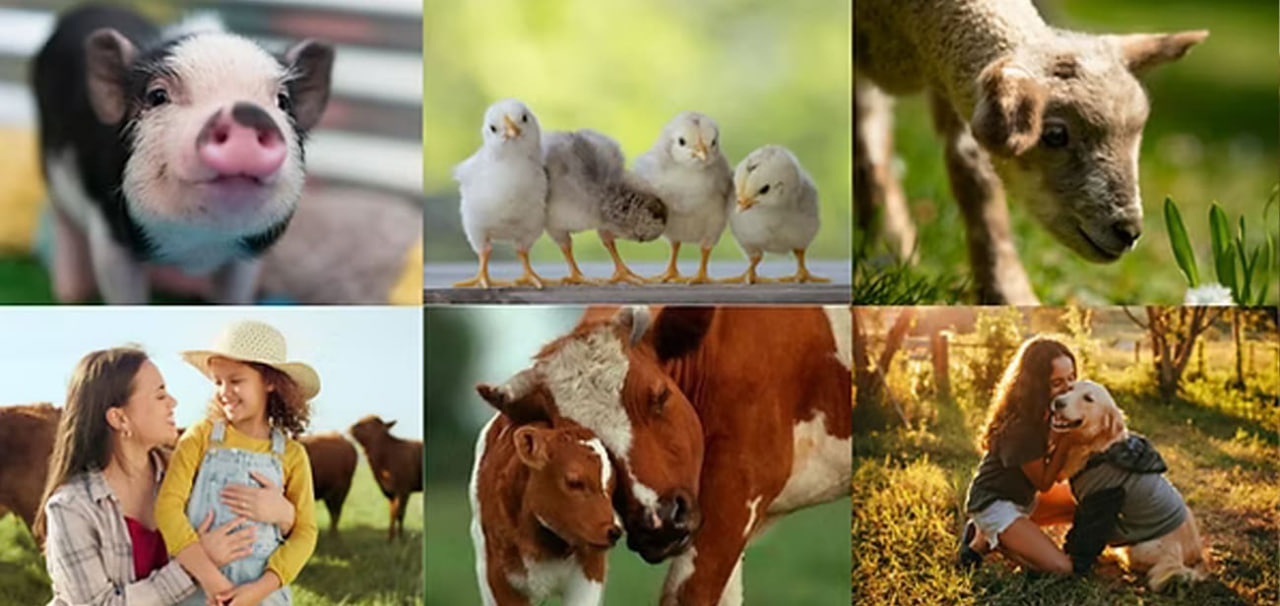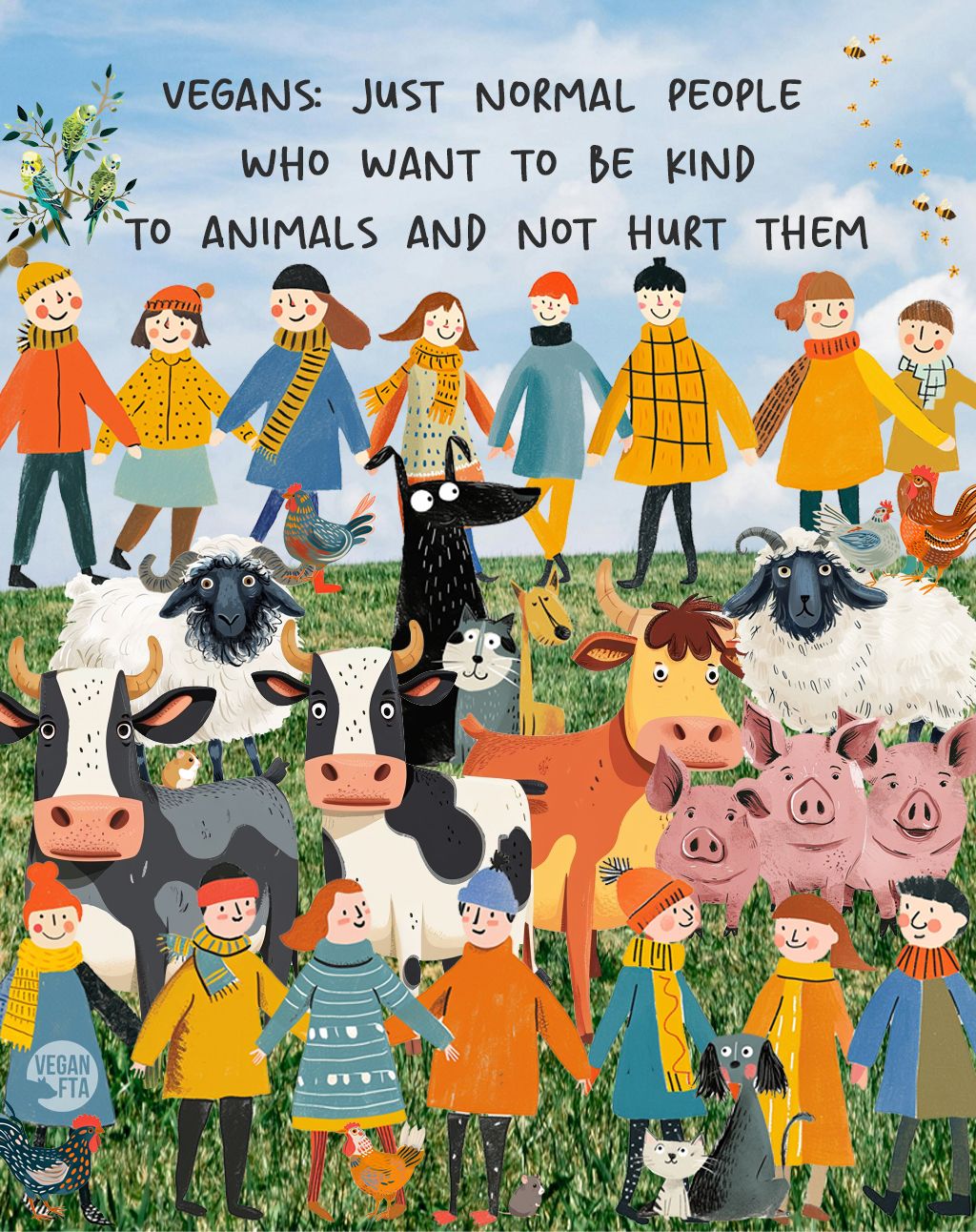Factory farming, a dominant method of food production in many parts of the world, raises significant ethical, environmental , and health concerns that demand urgent attention. This industrialized approach to agriculture prioritizes efficiency and profit over the well-being of animals, the health of communities, and the sustainability of our planet. As vast numbers of livestock are confined in overcrowded and often unsanitary conditions, animal welfare is severely compromised, leading to widespread suffering and distress. Additionally, the environmental repercussions of factory farming are alarming; intense resource consumption, greenhouse gas emissions, and pollution from runoff threaten ecosystems and contribute to climate change. On a human level, factory farming can exacerbate public health issues, as the overuse of antibiotics in livestock contributes to the rise of antibiotic-resistant bacteria, posing risks to human health. In examining the multifaceted impacts of factory farming, it becomes evident that this system is not only detrimental to animals but also unsustainable for humans and the planet alike. This article delves into these interconnected issues, exploring the urgent need for a paradigm shift in our approach to food production that prioritizes humane treatment, ecological balance, and public health.
Understanding Factory Farming ‘s Environmental Impact on Ecosystems
The industrial-scale practices prevalent in factory farming significantly disrupt ecosystems through various channels, including land use, water consumption, and pollution. Large tracts of land are often converted into monoculture crops to feed livestock, resulting in deforestation and a loss of biodiversity. This shift not only diminishes habitats for numerous species but also alters the natural balance of ecosystems. Additionally, the high demand for water in these operations can lead to the depletion of local water sources, exacerbating drought conditions and stressing surrounding ecosystems.
Moreover, the waste generated by intensive animal farming contributes to severe environmental degradation. Nutrient runoff from manure can contaminate waterways, leading to harmful algal blooms that further disrupt aquatic ecosystems. This nutrient pollution affects not only aquatic life but also the quality of drinking water, posing risks to human health. The greenhouse gas emissions associated with factory farming further exacerbate climate change, contributing to shifts in weather patterns and habitat loss across ecosystems worldwide. Overall, the interconnectedness of factory farming practices with environmental health underscores a critical need for sustainable alternatives that prioritize ecological balance.
Ethical Concerns Surrounding Animal Welfare Practices
Practices within intensive farming systems raise significant ethical questions regarding the treatment of animals. The confinement of livestock in cramped, unsanitary conditions often leads to physical suffering and psychological distress, as animals are deprived of their natural behaviors and social interactions. The prioritization of productivity and profit over animal welfare can result in a range of issues, including the use of antibiotics to mitigate disease prevalence in overcrowded environments, which can foster antibiotic resistance and pose broader public health risks.
Furthermore, the standards for humane treatment vary widely across regions and regulatory frameworks, leading to inconsistencies in what is considered acceptable treatment of animals. Practices such as tail docking, debeaking, and other forms of mutilation are often justified under the guise of improving efficiency, yet they raise profound ethical dilemmas about the rights and well-being of sentient beings. As society becomes increasingly aware of these issues, the call for more humane and ethical alternatives in animal agriculture grows louder, emphasizing the need for reforms that respect animal welfare while balancing agricultural productivity.
Health Risks Associated with Factory Farming
intensive agricultural operations extend beyond ethical concerns and significantly impact public health. The overuse of antibiotics in livestock to prevent disease outbreaks in crowded conditions contributes to the emergence of antibiotic-resistant bacteria, which can subsequently enter human populations, complicating the treatment of infections and increasing healthcare costs. Additionally, the environmental consequences of factory farming, such as waste runoff, can contaminate water supplies with pathogens and toxins, further jeopardizing community health.
The close quarters in which animals are raised create ideal conditions for the rapid spread of zoonotic diseases, which can be transmitted from animals to humans. Outbreaks of infections such as swine flu and avian influenza have been linked to intensive farming practices, highlighting the interconnectedness of animal health, human health, and environmental health. Furthermore, the stress imposed on both livestock and workers in these settings can lead to mental health issues, exacerbating the negative impacts associated with these agricultural methods. Therefore, the health risks associated with intensive farming practices necessitate urgent attention and reevaluation of current systems.
Economic Consequences for Local Communities
The proliferation of large-scale agricultural operations can lead to significant economic challenges for local communities. Traditional farmers often struggle to compete with the low prices generated by factory farms, which can sell their products at a fraction of the cost due to economies of scale and government subsidies. This disruption not only threatens the livelihoods of small and family-owned farms but also erodes the local agricultural identity and cultural heritage. As these smaller operations decline, communities may experience a loss of local food sources, diminishing their food sovereignty and increasing reliance on imported goods, which can further exacerbate economic instability.
Moreover, factory farming can strain local infrastructure and resources, contributing to deteriorating quality of life for residents. The demand for water and land by intensive farming operations can outstrip local supplies, leading to environmental degradation and increased costs for community services. The concentration of waste can also create public health hazards, resulting in potential costs for local governments in terms of healthcare and environmental cleanup. Consequently, the economic ramifications of such farming practices extend beyond immediate financial concerns, affecting community cohesion, public health, and the overall sustainability of local economies.
In conclusion, the pervasive practice of factory farming raises significant ethical, environmental, and health concerns that cannot be overlooked. As we have explored, the detrimental effects on animal welfare, coupled with the negative impacts on human health and the planet’s ecosystems, paint a troubling picture of an industry driven by profit at the expense of compassion and sustainability. It is imperative for consumers, policymakers, and industry leaders to acknowledge these issues and advocate for more humane and environmentally responsible farming practices. By supporting sustainable alternatives and demanding greater transparency in food production, we can collectively work towards a future that prioritizes the welfare of all living beings and the health of our planet.
Source: https://cruelty.farm
FAQ
What are the primary ethical concerns associated with factory farming practices in relation to animal welfare, and how do these practices impact the overall health of livestock?
Primary ethical concerns in factory farming include inhumane treatment of animals, such as overcrowding, lack of movement, and poor living conditions, leading to significant suffering. These practices undermine animal welfare by prioritizing profit over humane treatment. Additionally, the stress and confinement experienced by livestock can compromise their health, resulting in increased disease susceptibility and the need for antibiotics, which can contribute to antibiotic resistance. Ultimately, factory farming practices raise serious ethical questions about our responsibilities toward animals and the implications for public health.
In what ways does factory farming contribute to environmental degradation, including issues such as greenhouse gas emissions, water pollution, and loss of biodiversity?
Factory farming contributes to environmental degradation through several mechanisms. It produces significant greenhouse gas emissions, particularly methane and nitrous oxide, from livestock and manure management. The concentration of animals leads to water pollution from runoff containing antibiotics, hormones, and nutrients, harming aquatic ecosystems. Additionally, factory farms often require deforestation and habitat destruction for feed crops, resulting in biodiversity loss. Overuse of land and water resources also strains local ecosystems, disrupting natural habitats and contributing to soil degradation. Overall, these practices create a cycle of environmental harm that impacts climate, water quality, and species diversity.
How does the prevalence of factory farming affect the livelihoods and health of local communities, particularly in terms of food security and access to fresh, nutritious food?
Factory farming often leads to the consolidation of food production, which can undermine local farmers and diminish their livelihoods. This concentration can reduce the availability of diverse, fresh, and nutritious food options in local markets, negatively affecting food security. Additionally, factory farms may contribute to environmental degradation and health issues, such as air and water pollution, which can further harm community health. As access to healthy food decreases, local populations may rely more on processed, low-nutrient foods, exacerbating health disparities and increasing the risk of diet-related diseases. Ultimately, factory farming can create systemic barriers to sustainable community health and nutrition.
What role does government regulation play in mitigating the negative impacts of factory farming on animal welfare and the environment, and what reforms are being proposed or implemented?
Government regulation plays a crucial role in mitigating the negative impacts of factory farming by setting standards for animal welfare, pollution control, and food safety. Regulations can limit practices that harm animals and the environment, such as excessive antibiotic use and waste management. Proposed reforms include enhanced animal welfare laws, stricter emissions standards, and promoting sustainable farming practices. Initiatives like the Humane Society’s efforts for stronger animal protection laws and the push for carbon footprint regulations reflect a growing movement towards more ethical and environmentally friendly agricultural practices.
How can consumers influence the practices of factory farming through their purchasing decisions, and what alternatives are available for those seeking to support more humane and sustainable farming methods?
Consumers can influence factory farming practices by choosing products from brands that prioritize humane treatment and sustainable practices. By purchasing organic, free-range, or pasture-raised options, consumers signal demand for higher welfare standards. Supporting local farms and participating in community-supported agriculture (CSA) also promotes sustainable farming. Additionally, reducing meat consumption or opting for plant-based alternatives can lessen the demand for factory-farmed products. Educating others about the impacts of their choices and advocating for ethical food policies can further drive change in the industry.








Saturday, 13 December , 2025